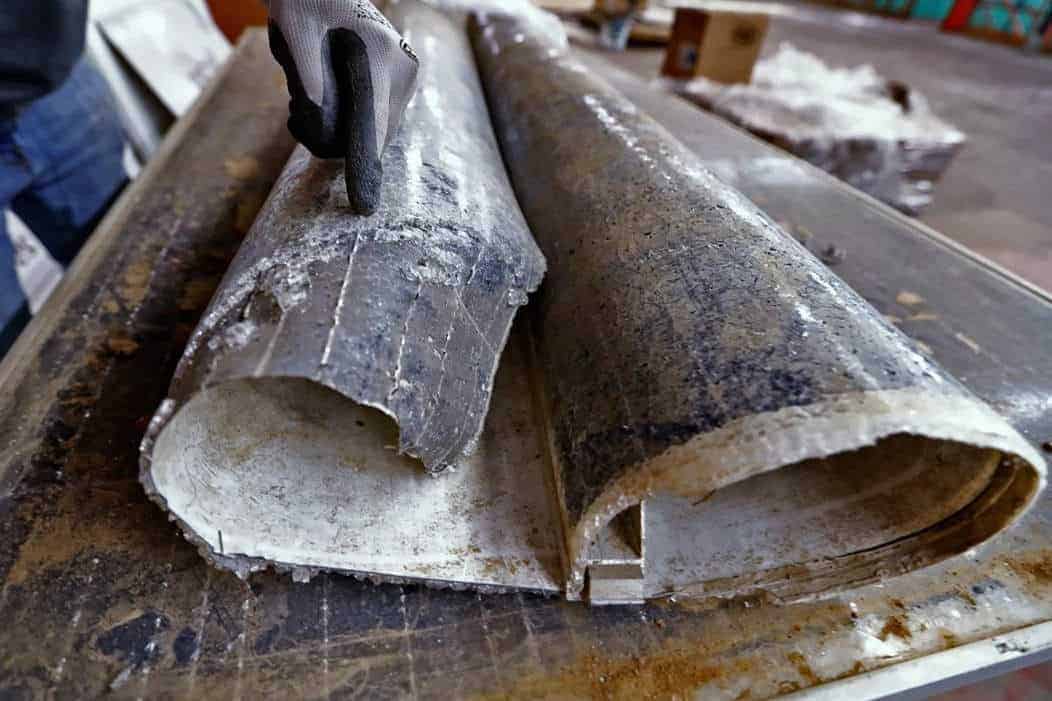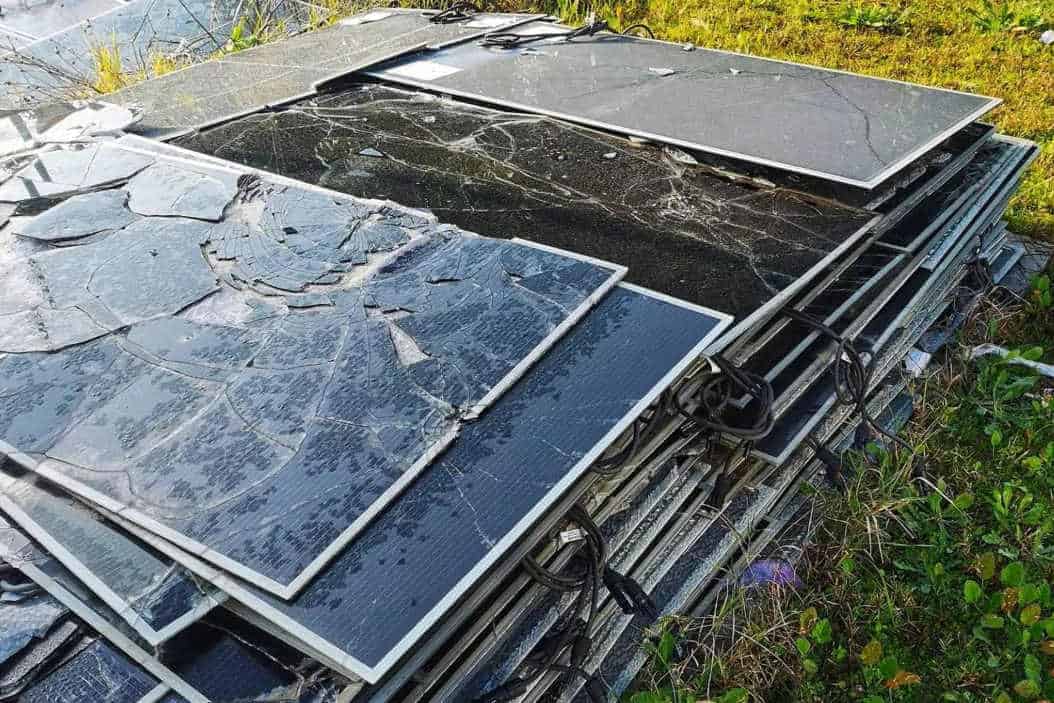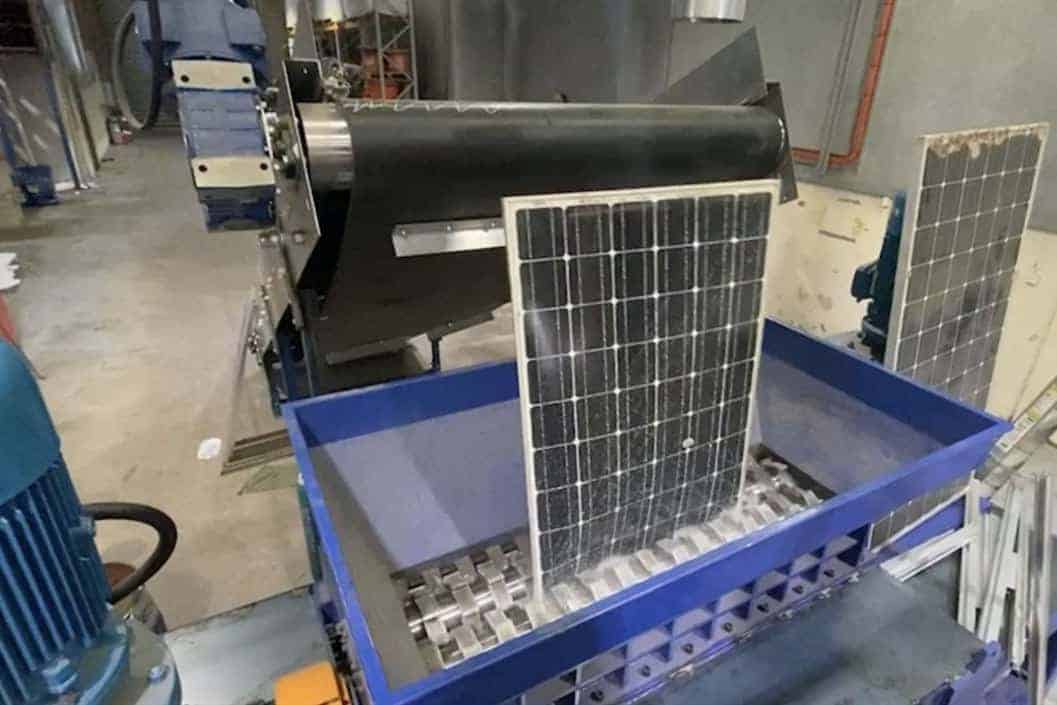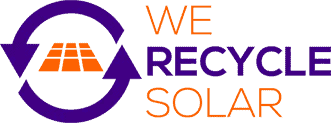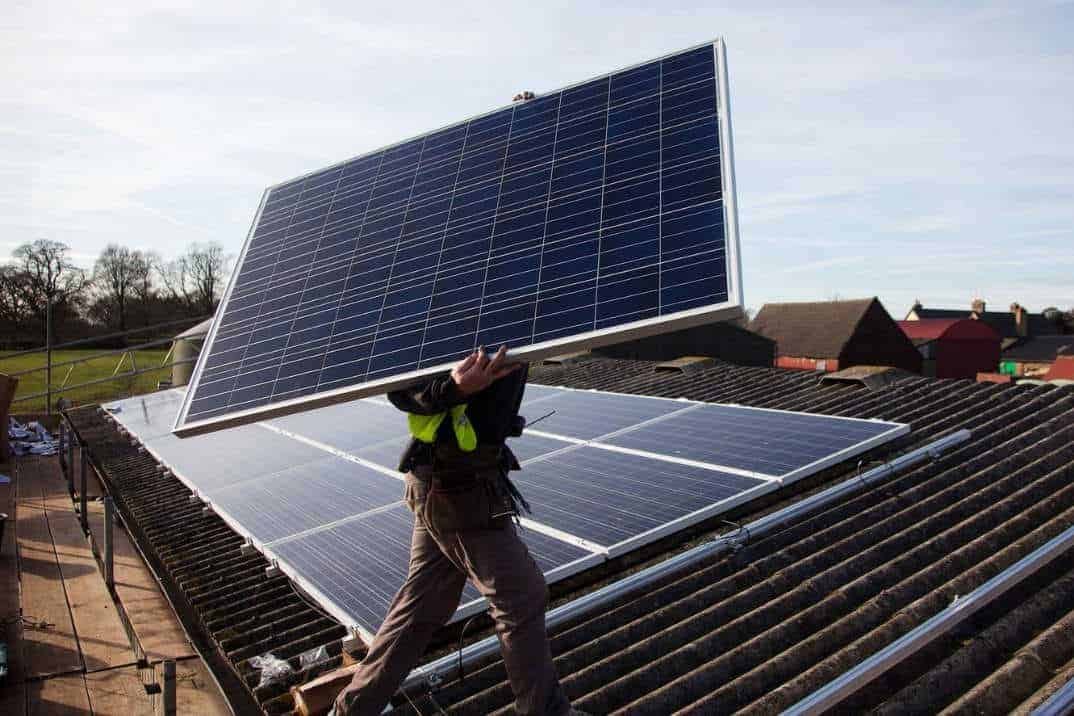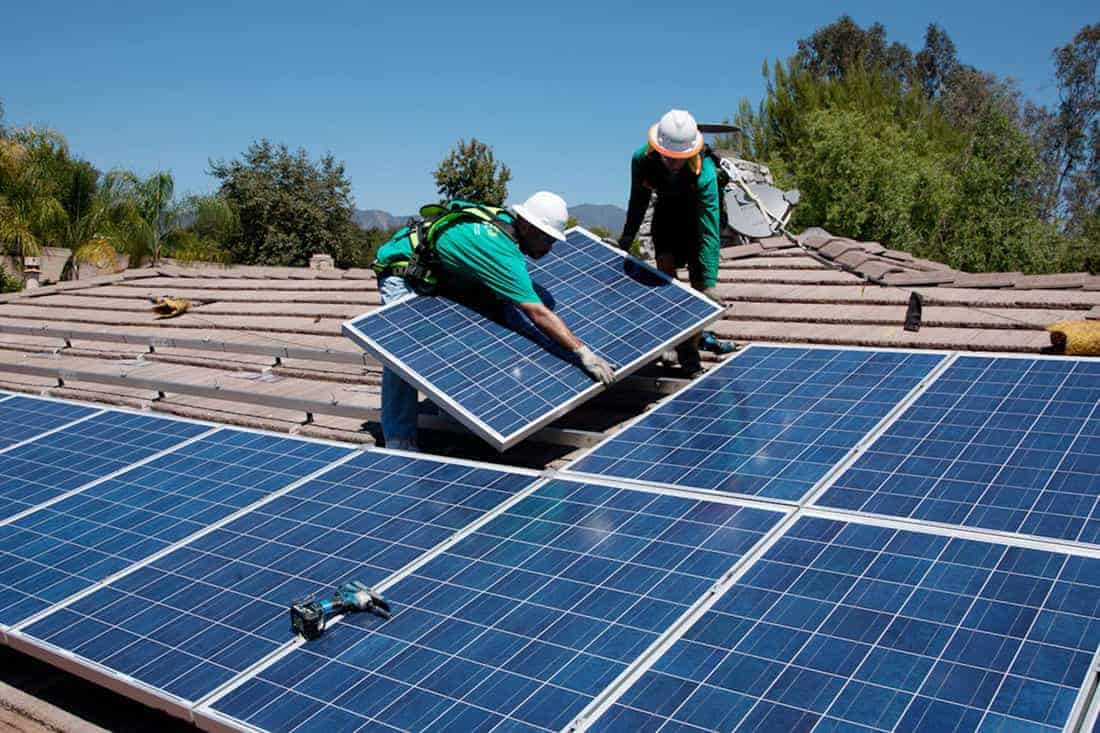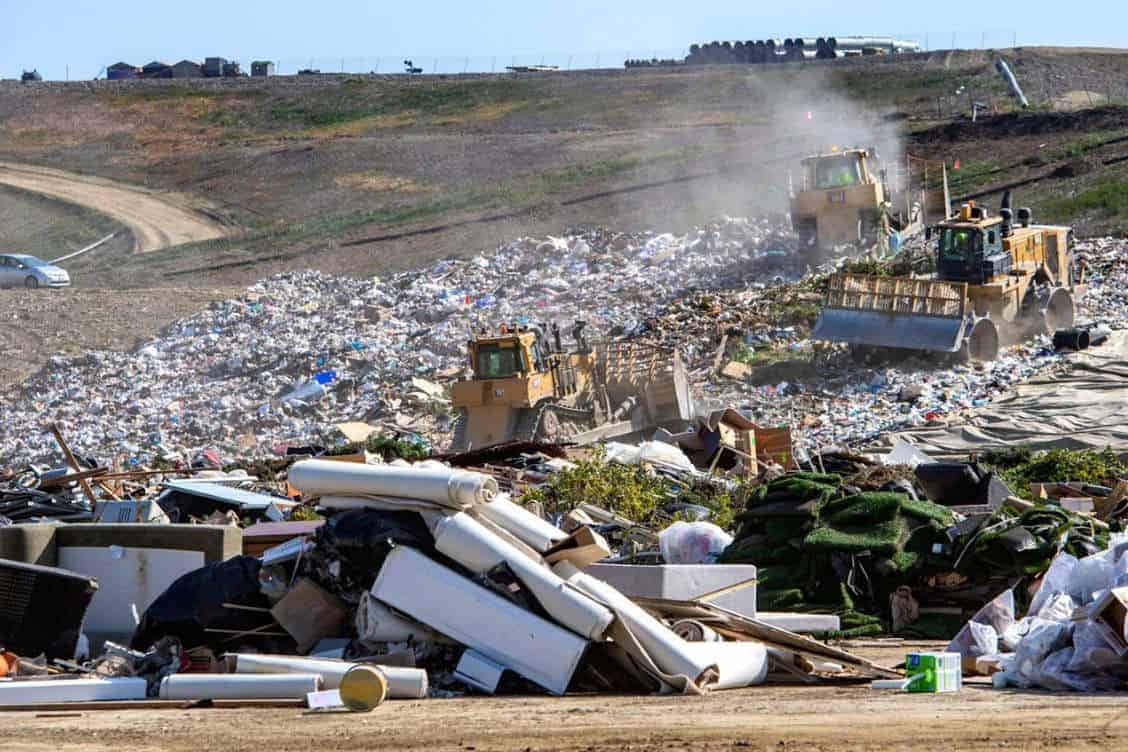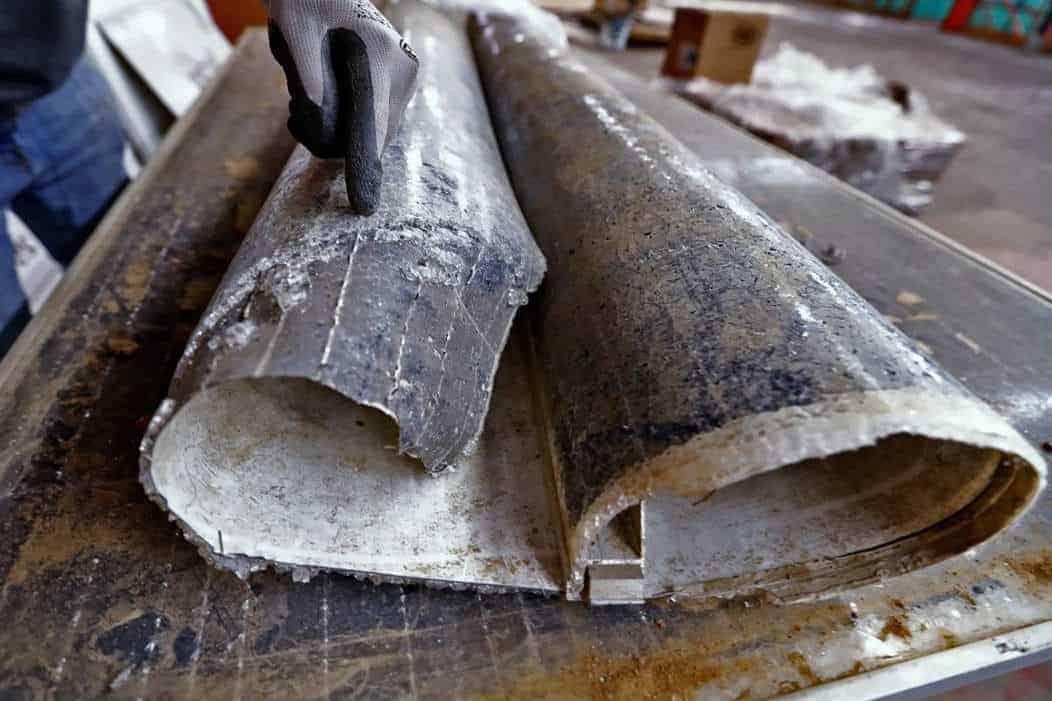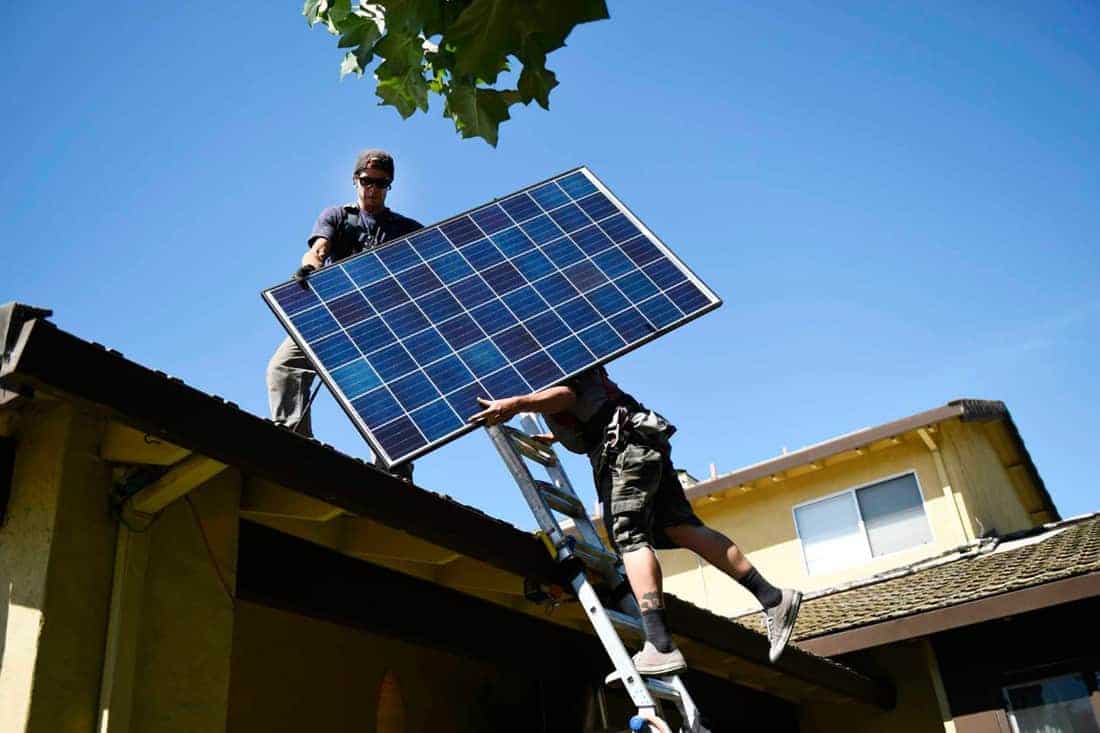How do you dispose of your solar panels at the end of their lives?
Solar panels are outdoor appliances. Manufacturers build them to withstand the elements. PV panels are quite durable and can last up to 25-30 years. But what happens at the end of their usable life?
Solar panels contain toxic materials like lead and cadmium. Proper disposal is important because these chemicals can contaminate soil and groundwater. Continuous contamination can be harmful to both humans and plant life.
In our quest to find the best way to dispose of solar panels, we’ll outline all the possible options. We’ll also explain everything involved in each option. And we’ll conclude by ranking the options from best to worst.
Let’s get into it.
Recycling Solar Panels
Recycling is one of the best ways to dispose of damaged solar panels. It involves pulling apart solar panels and recovering reusable materials.
Solar panels contain valuable and rare materials. Silicon, silver, copper, tin, and aluminum are some of the metals that make solar panels. Recovering these metals reduces the need to mine them. Recycling also recovers toxic chemicals like cadmium and lead.
The Process of Recycling Solar Panels
Recycling can be expensive. So the recycler has to recover as much value as possible. Glass, aluminum, and silicon are some of the materials that make up solar panels.
The EPA recommends these steps when recycling solar panels:
Step 1. Pulling Apart the Frame and Junction Box
This step involves removing the aluminum frame. With the frame gone, the glass and silicon wafer are accessible. The junction box at the bottom of the solar panel also comes out.
Step 2. Separation of Glass from the Silicon Wafer
A solar panel stays on your roof all year round. It has to endure harsh weather conditions like rain and snow. To protect the silicon cells from water damage, manufacturers stick a pane of glass. They also line the back of the panel with plastic for weather protection.
Separating the glass from the silicon wafer isn’t easy. Both components are stuck together by a strong glue. The EPA recommends using thermal, chemical, and mechanical processes to separate these components.
Step 3. Shredding silicon cells
Shredding involves cutting the silicon wafer into smaller pieces. Cutting the silicon cells makes it easy to separate the materials that make them.
Step 4. Separation
Recyclers use magnets and machines to separate metal from plastic. This process captures metals like tin, silver, copper, and lead.
Step 5. Purification of Materials
At this point, the metals have a lot of contaminants. Purification involves removing these contaminants using heat. Solar companies can use these pure metals to make new solar panels.
Step 6. Disposal of Non-Recyclable Materials
Not all the components of solar panels are recyclable. Some plastic parts are hard to recycle because they can yield inferior products. Recyclers dispose of Non-recyclable in environmentally-responsible ways.
Companies That Recycle Solar Panels
Recycling is good for the planet, but who recycles solar panels in the United States? Below are some companies that recycle old or damaged solar panels.
EnergyBin
EnergyBin recycles old and damaged solar panels. It is a platform for brokers and resellers of solar equipment. EnergyBin also sells used solar equipment at below-market prices. EnergyBin’s head offices are in Rochester, Minnesota.
We Recycle Solar
We Recycle Solar does what its name suggests; recycling solar panels. The company works with solar panel installers and manufacturers to recover value from solar equipment. We Recycle Solar has offices all over the US and in certain parts of Germany, Japan, and South Korea.
Pros vs. Cons of Solar Panel Recycling
Pros
- Reduces the need to mine certain metals
- Is environmentally conscious
Cons
- Costly
Donating or Reselling Solar Panels
Sometimes you have to upgrade your solar panels. Or you have to move and can’t take them with you. Such solar panels may not be old or damaged. What’s the best way to dispose of them?
Donating or reselling is a perfect way of disposing of functional solar panels. It lightens the trash burden on landfills, saving the planet from toxic chemicals. It also helps other people get solar energy at low prices.
Donating solar panels involves giving them to individuals and organizations needing them. Beneficiaries of solar panel donations can be schools, hospitals, or non-profit organizations.
Organizations That Accept Solar Panel Donations
You can donate your solar panels through the organizations below:
Good Sun
Good Sun is a registered charity. It partners with many companies, including EnergyBin. Together, they make solar energy accessible for all. Good Sun donates to schools and villages in Africa.
Besides recycling, EnergyBin accepts solar panel donations. They pass them on to charities like Twende Solar and Good Sun.
Platforms for Selling Used Solar Panels
Reselling solar panels is another effective way of disposing of used solar panels. It involves selling your used solar panels to other people. Reselling allows you to regain some of your investment.
You can sell your used solar panels through organizations like:
eBay
eBay is a popular platform for reselling pre-owned items. You can sell your used solar panels and related equipment on eBay.
CragsList
CraigsList is another popular platform for reselling used items. You can list your used solar panels and find a potential buyer.
EnergyBin
EnergyBin does it all, recycling, donating, and reselling solar panels. However, EnergyBin is a business-to-business company. It buys used solar panels from other companies.
Solar Panel Landfill Disposal
While it is not the best way to get rid of solar panels, landfill disposal is still an option that won’t go away. Dumping your solar panels in landfills can harm the environment. Solar panels contain toxic materials. Lead and cadmium can leech into the soil, harming plant life and poisoning groundwater.
But properly constructed landfills can contain the toxic waste of solar panels. Properly built landfills cost more. And waste managers would rather save money than do the right thing. We need laws to compel waste managers to dispose of solar panels properly.
Regulations Governing Landfill Disposal of Solar Panel
Disposing of solar panels is still a new challenge. We’re only retiring the first batch of solar panels widely used by the public. And this presents two problems; we don’t know how to dispose of them, and we don’t have enough laws to govern this disposal.
Yet, certain jurisdictions have made some efforts to govern landfill solar panel disposal.
Federal Laws
At the federal level, solid and hazardous waste regulations govern solar panel disposal. RCRA Subtitle D governs the disposal of solid waste. RCRA Subtitle C governs the disposal of hazardous waste.
All solar panels qualify as solid waste, but not all as hazardous waste. Those that contain heavy metals like lead and cadmium qualify as hazardous waste. Thus, RCRA Subtitle C laws apply.
California State Laws
In California, the state recognizes solar panels as “Universal Waste.” This category also includes items like batteries, pesticides, and light bulbs. Universal waste is toxic.
Universal waste should go to dedicated landfills. Such landfills should only carry hazardous waste. They should be able to contain harmful chemicals.
California is only one of many states with specific laws for solar panel disposal. To learn about laws specific to you, check out your state’s environmental agency website.
Final Thoughts: Best Way to Dispose of Solar Panels
Disposing of solar panels is a relatively new challenge. Solar panels are built to withstand the elements, and that’s why they’re so durable. The average solar panel has a lifespan ranging between 25-30 years. With the first solar panels installed in the 1970s, we’re starting to decommission our first solar appliances.
With more people embracing solar now, disposal will be a bigger challenge in the future. We’ve tackled various options for disposing of solar panels. But which methods offer the best option for disposal?
Let’s rank our solar panel disposal methods from best to worst.
First Choice: Donating Solar Panels
Donating is the best mode for disposing of functional solar panels. Donating extends the life of an old solar panel. It also allows another person to embrace solar energy at a low cost of entry.
You can also donate malfunctioning solar panels. Some of them are repairable. Plus, saving solar panels from a landfill is good for the environment.
Second Choice: Reselling Solar Panels
Reselling may not be as thoughtful as donating, but it also extends the life of your solar panel. You also regain some of your investment. You can use the funds to buy a newer solar panel.
Third Choice: Recycling Solar Panels
Recycling is the best way of disposing of damaged or non-functional solar panels. Recyclers can recover valuable metals like silver, copper, and tin with this method. Selling these metals makes recycling worth their while.
Recovering these metals also reduces the burden on mining. A metal like silver is rare, and we need much of it to make more solar panels.
Recycling also allows for the proper disposal of toxic lead and cadmium components. These compounds can leach into the soil and pollute the environment. Recycling helps contain them.
Recycling solar panels come with one disadvantage; it is expensive.
Last Choice: Landfill Disposal
There may be better options than dumping solar panels in landfills. But if done right, it can be harmless. Many solar panels contain toxic chemicals. In California, solar panels are classified as hazardous waste and fall under the “Universal Waste” category.
Universal waste should be disposed of in dedicated landfills meant for hazardous waste. Such a landfill must have the capacity to contain leaking toxins. They should also protect the soil from leaching.
How you dispose of your solar panels depends on whether they are functional. For functional PV panels, donating or reselling them is the best option. For non-functional solar panels, recycling is the best option.

